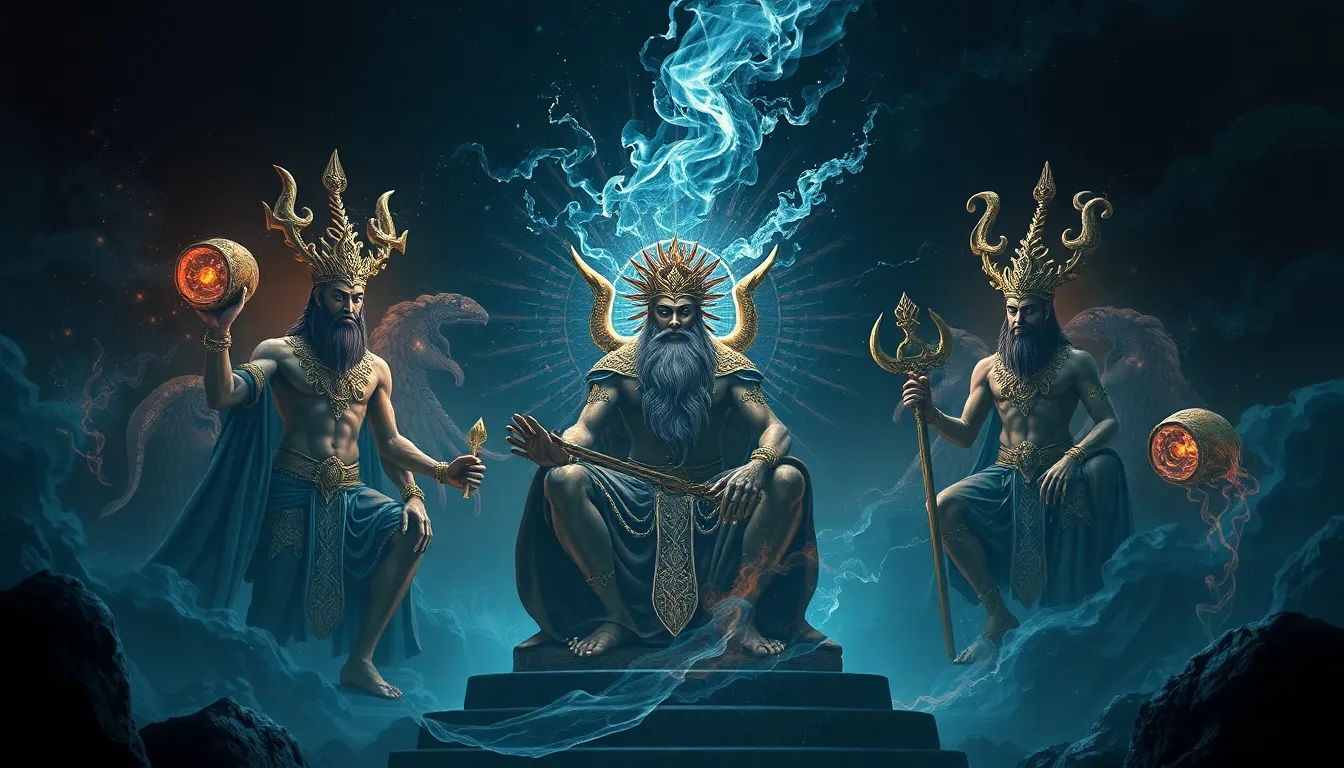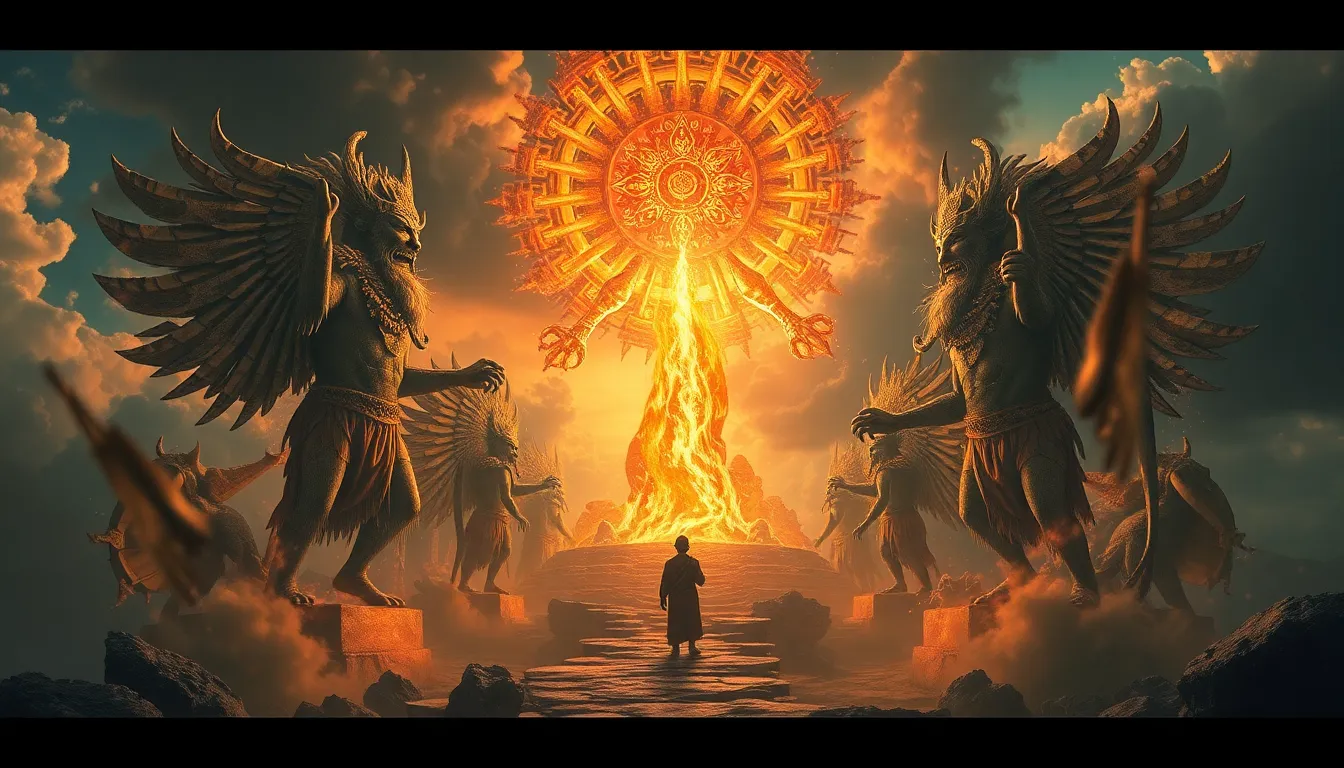The Role of Ancient Deities in Shaping Human Morality
1. Introduction
Morality is defined as a system of principles and judgments based on notions of right and wrong. It holds significant importance in human societies as it governs behavior, fosters social cohesion, and establishes standards for justice. Throughout history, ancient deities have played a pivotal role in shaping the moral frameworks of various cultures. These gods and goddesses not only represented the values of their societies but also served as instruments through which moral lessons were conveyed. This article aims to explore the profound influence of ancient deities on moral frameworks across different civilizations.
2. Historical Context of Ancient Deities
Ancient civilizations such as Mesopotamia, Egypt, Greece, and India developed rich mythologies that were deeply intertwined with their social structures and moral codes. Religion served as a cornerstone in these societies, providing explanations for natural phenomena and establishing ethical guidelines. Key deities emerged as embodiments of specific virtues, leading to a moral compass that guided human behavior.
- Mesopotamia: The gods like Marduk represented justice and order.
- Egypt: Deities such as Osiris symbolized resurrection and moral integrity.
- Greece: Gods like Athena embodied wisdom and warfare ethics.
- India: Deities such as Dharma Raj Yama represented the concept of righteousness and karma.
3. The Interplay Between Religion and Morality
Religious beliefs have historically been instrumental in shaping moral values. The concept of divine authority is central to moral decision-making; followers often look to their deities for guidance in ethical dilemmas. Many moral codes can be traced back to religious texts or teachings, which outline acceptable behavior and condemn wrongdoing.
Examples of moral codes influenced by religious doctrines include:
- The Ten Commandments in Judaism and Christianity.
- The Five Precepts in Buddhism.
- The Laws of Manu in Hinduism.
4. Case Studies: Deities and Their Moral Teachings
Examining specific deities reveals the moral implications embedded within their narratives:
- Zeus: In Greek mythology, Zeus is often associated with justice and the enforcement of oaths. His role as the king of the gods illustrates the importance of authority and fairness.
- Maat: The Egyptian goddess of truth and justice, Maat emphasized the significance of harmony and moral order in society, ensuring that individuals lived righteously.
- Yama: In Hinduism, Yama represents the cycle of karma, teaching that actions have consequences and encouraging moral responsibility.
These myths and stories serve as vehicles for moral lessons, illustrating the values that were essential to their respective societies.
5. Deities as Moral Exemplars
Ancient deities were often portrayed as role models for human behavior. Their stories frequently included themes of divine punishment and reward, reinforcing the notion of moral accountability. The anthropomorphism of deities—where gods exhibit human-like traits—made it easier for followers to relate to them and understand moral values.
For instance:
- Zeus punishing Prometheus for stealing fire signifies the consequences of defying divine law.
- Maat’s judgment of souls in the afterlife illustrates the importance of living a truthful life.
6. Cultural Variations in Moral Interpretation
Moral teachings varied significantly across ancient cultures, influenced by local customs and societal needs. While some deities shared similar attributes across cultures, their moral roles adapted to fit different contexts. Over time, as societies evolved, so did the interpretations of these moral teachings.
For example, while many cultures revered the concept of justice, the methods and implications surrounding it could differ greatly, leading to unique moral codes.
7. Critiques of Divine Morality
The idea of morality rooted in divine command has faced philosophical scrutiny. The Euthyphro dilemma questions whether something is good because God commands it, or if God commands it because it is good. This has significant implications for the nature of divine morality.
Additionally, secular ethics and humanism present alternative frameworks for understanding morality, focusing on human reason and experience rather than divine authority.
8. Legacy of Ancient Deities in Modern Moral Frameworks
The moral values established by ancient deities have left a lasting legacy, continuing to influence contemporary ethical discussions. Although societies have changed, the fundamental concepts of justice, truth, and righteousness remain relevant today.
- Modern legal systems often reflect the moral teachings of ancient civilizations.
- Contemporary discussions on ethics frequently draw upon the lessons of historical figures and deities.
9. The Psychological Impact of Belief in Deities on Morality
Belief in deities significantly affects individual and collective moral behavior. The interplay of fear, hope, and community shapes moral actions, providing both motivation and a framework for ethical conduct.
Psychological studies have shown that religious belief can enhance altruistic behavior and foster a sense of community responsibility, demonstrating the profound impact of ancient deities on morality.
10. Conclusion
In conclusion, ancient deities have played a crucial role in shaping human morality across various cultures. Their influence is evident in the ethical frameworks that continue to guide societies today. By examining the historical context, the interplay between religion and morality, and the legacy of these deities, we can better understand the foundations of our moral beliefs and their evolution over time.



